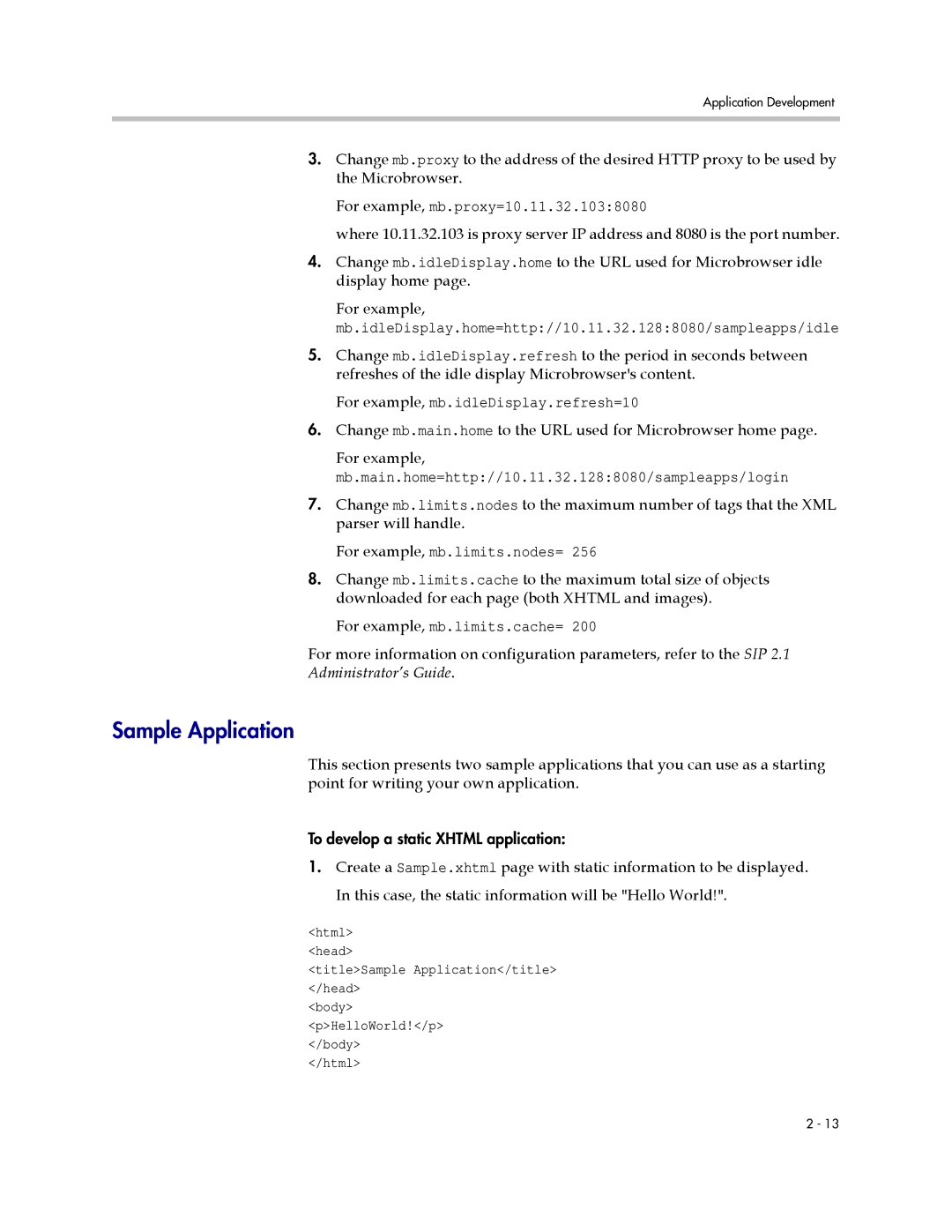Application Development
3.Change mb.proxy to the address of the desired HTTP proxy to be used by the Microbrowser.
For example, mb.proxy=10.11.32.103:8080
where 10.11.32.103 is proxy server IP address and 8080 is the port number.
4.Change mb.idleDisplay.home to the URL used for Microbrowser idle display home page.
For example, mb.idleDisplay.home=http://10.11.32.128:8080/sampleapps/idle
5.Change mb.idleDisplay.refresh to the period in seconds between refreshes of the idle display Microbrowser's content.
For example, mb.idleDisplay.refresh=10
6.Change mb.main.home to the URL used for Microbrowser home page.
For example, mb.main.home=http://10.11.32.128:8080/sampleapps/login
7.Change mb.limits.nodes to the maximum number of tags that the XML parser will handle.
For example, mb.limits.nodes= 256
8.Change mb.limits.cache to the maximum total size of objects downloaded for each page (both XHTML and images).
For example, mb.limits.cache= 200
For more information on configuration parameters, refer to the SIP 2.1
Administrator’s Guide.
Sample Application
This section presents two sample applications that you can use as a starting point for writing your own application.
To develop a static XHTML application:
1.Create a Sample.xhtml page with static information to be displayed. In this case, the static information will be "Hello World!".
<html>
<head>
<title>Sample Application</title> </head>
<body>
<p>HelloWorld!</p>
</body>
</html>
2 - 13
